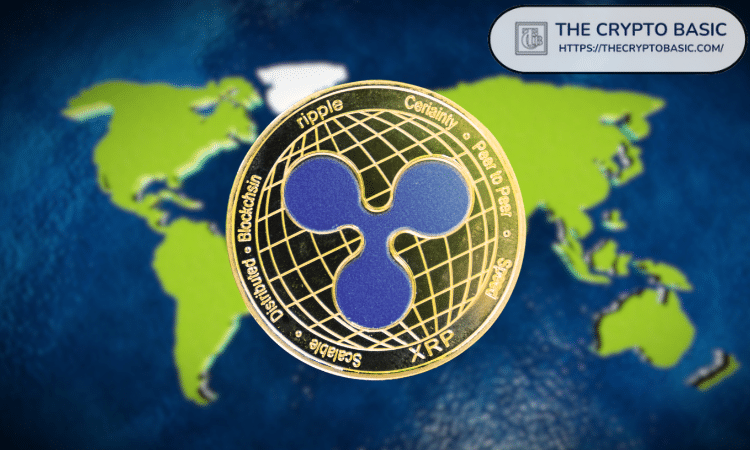Crypto pioneer and former Ripple exec Greg Kidd outlines a vision for blockchain-powered banking, suggesting Ripple could transform traditional finance by absorbing outdated institutions.
Kidd shared these insights at the third annual XRP Las Vegas conference during a fireside chat with journalist Eleanor Terrett. He reflected on his early days with Ripple and described a future beyond crypto as a speculative asset. For him, the endgame is full integration of blockchain into the core of the global financial system.
Kidd recalled that when he joined Ripple in 2012, there were only 188 accounts on the ledger.
“It was like being there with the disciples,” he said. “But even then, the vision was clear: money should move at the speed of the internet.”
Vast Bank, Tokenized Dollars, and a New Financial Backbone
Today, Kidd leads an initiative to bring the banking system on-chain by acquiring Vast Bank, a nationally chartered institution regulated by the OCC and the Federal Reserve. He aims to issue FDIC-insured U.S. dollar deposit tokens directly on blockchain networks, including the XRP Ledger.
Unlike stablecoins, which must be backed 1:1 and are limited in scope, Kidd’s approach leverages fractional reserve banking.
We’re eight times more capital efficient than stablecoins,” he said. “And we can pay interest, offer consumer protections, and keep money moving around the clock.”
This on-chain model serves crypto-native developers and users while undercutting the legacy system’s inefficiencies.
Kidd sees a world where people everywhere can hold and use digital U.S. dollars that never technically leave the banking system, even when sent across borders. He argues that if funds remain on the ledger and in dollar form, traditional remittances become obsolete.
Open Banking and Fair Access
The conversation also touched on the evolution of U.S. financial regulation since the 2024 election. Kidd credited the new administration with removing “reputational risk” from federal exam guidelines. This obstacle had previously kept many legal industries, including crypto, cannabis, and adult content, out of the banking system.
“We call them the consensual vices,” he said. “If you’re legal and licensed, you should be banked. Period.”
Meanwhile, Kidd’s political activism hasn’t slowed. He now advocates for a new banking charter focused solely on deposits and payments. This would allow fintech firms like Ripple to obtain banking licenses without building brick-and-mortar branches or issuing loans.
Kidd eyes a future where banking is as accessible and seamless as breathing air.
“Payments should be free. Banking should be universal. And blockchain makes that possible,” he said. “What Ripple and others are doing now is building that future.”
Ripple to Put Legacy Companies Out of Their Misery
As Ripple expands its investments and navigates global markets post-lawsuit, Kidd predicts the company will play a central role in overhauling traditional finance.
When asked where he sees Ripple in ten years, Kidd said the company will become a fully integrated blockchain firm. He even suggested Ripple may someday buy up some legacy companies and “put them out of their misery.”
By that, he means acquiring financial institutions still operating on outdated infrastructure and migrating them onto more efficient blockchain rails.
🚨Where do you see Ripple in 10yrs?
I think Ripple may some day buy up some Legacy companies and put them out of their misery.-Greg Kidd
XRPLasvegas2025.
Lock in.😎👇 pic.twitter.com/fNZM5nSNso
— Digital Perspectives (@DigPerspectives) June 12, 2025
His comments highlight Ripple’s long-term ambition not just to challenge but to absorb and transform legacy financial infrastructure.
DisClamier: This content is informational and should not be considered financial advice. The views expressed in this article may include the author's personal opinions and do not reflect The Crypto Basic opinion. Readers are encouraged to do thorough research before making any investment decisions. The Crypto Basic is not responsible for any financial losses.



